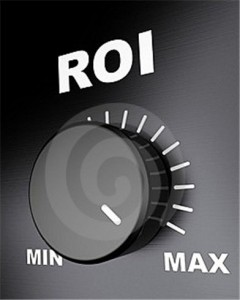Development only works with Measurement
The debate continues to rage regarding return on investment from development interventions. I have to confess I have always struggled with HR’s issue with ROI. They seem to make it so, well, complicated.
Maybe it is because I come from a commercial background that as a development practitioner I believe passionately that for a business and that I can measure it, as you would any other financial performance measure in the organisation. But I am often asked how do you measure the Return on Investment of development programmes – isn’t it all a bit intangible and difficult to measure?
As a I seem to bridge the gap between the development community and the business world. My thought process is simple. Business performance can be measured, so therefore people delivering performance can be measured too.
Like any other project or business investment can you really measure 100% scientifically, without doubt, that it is your intervention or project and not other factors that have delivered performance? Well yes, to a degree. And yes, I confess that there is a degree of judgement – but it is possible. Consider for a moment a sales person. Are they successful because they got lucky or because they were doing all the right things?
“I say luck is when an opportunity comes along and you’re prepared for it.” Denzel Washington
If an organization chooses to invest in capital equipment can it’s increase in sales be directly attributed to the equipment purchase? If the equipment is producing a product that previously the organization wasn’t producing, then the sales can be attributed to the capital project. But what about a new or additional pieces of kit – can you measure the return on investment accurately. The answer is yes, to a degree. Common sense tells you that if you invest in X and your sales revenue/productivity increase by Y or your costs reduce by Z then you have a positive return on investment.
So why does HR think that people development is somehow different? If an organization is choosing to invest in a programme of development and they are clear about what success looks like and what metrics will be used to measure success then yes performance improvement can be delivered.
Notice the key line “what success looks like and what metrics will be used” – too often HR lacks the discipline to consider what it is they are trying to achieve with a development programme. They decided to do a programme without considering how it aligns with business objectives or what the programme will deliver for the organisation. Before programme aims and objectives are decided on OD practitioners must consider what it is that the programme is delivering.
Starting with the end in mind makes sure that the programme is designed to deliver added value and that measures of success are agreed before a programme is developed let alone implemented. It helps the practitioner to ensure that what they are delivering will achieve a ROI, but also provide a platform for ongoing evaluation so that adaptations can be made if the programme isn’t delivering what it should during the implementation phase.
The amazing thing about people and organisation development is that . Agreeing up front what success looks like with the business makes it easy to demonstrate the ROI for Organisation Development Programmes
Even ‘feeling better’ after a programme has a value add that can be measured. If people ‘feel better’ what does that mean for a business? Absence reduces; productivity increases; attrition rates go down. It could be argued that these are because of other factors – but so to can an increase in sales after investing in capital goods. And is business growth because of a growing economy or is it because you are making good business decisions and investing in the right things?
Why ‘‘ has to be any different from any other capital investment I do not understand. Yes some of the indicators are lagging – and therefore behavioural change is more likely to impact long term measures, but there are still things that you can measure and data that you can capture which tell you whether the programme is delivering what is desired.
Personally I work on two measures – Return on Expectation, which is qualitative and Return on Investment which is quantitative. I agree the metrics and success criteria upfront; performance metrics which are used by and meaningful to the business and make sure that ongoing evaluation is part of the programme.
There is no black art, just good relations with the business analysts in the organization I work with. People deliver performance, and can and is measured!


